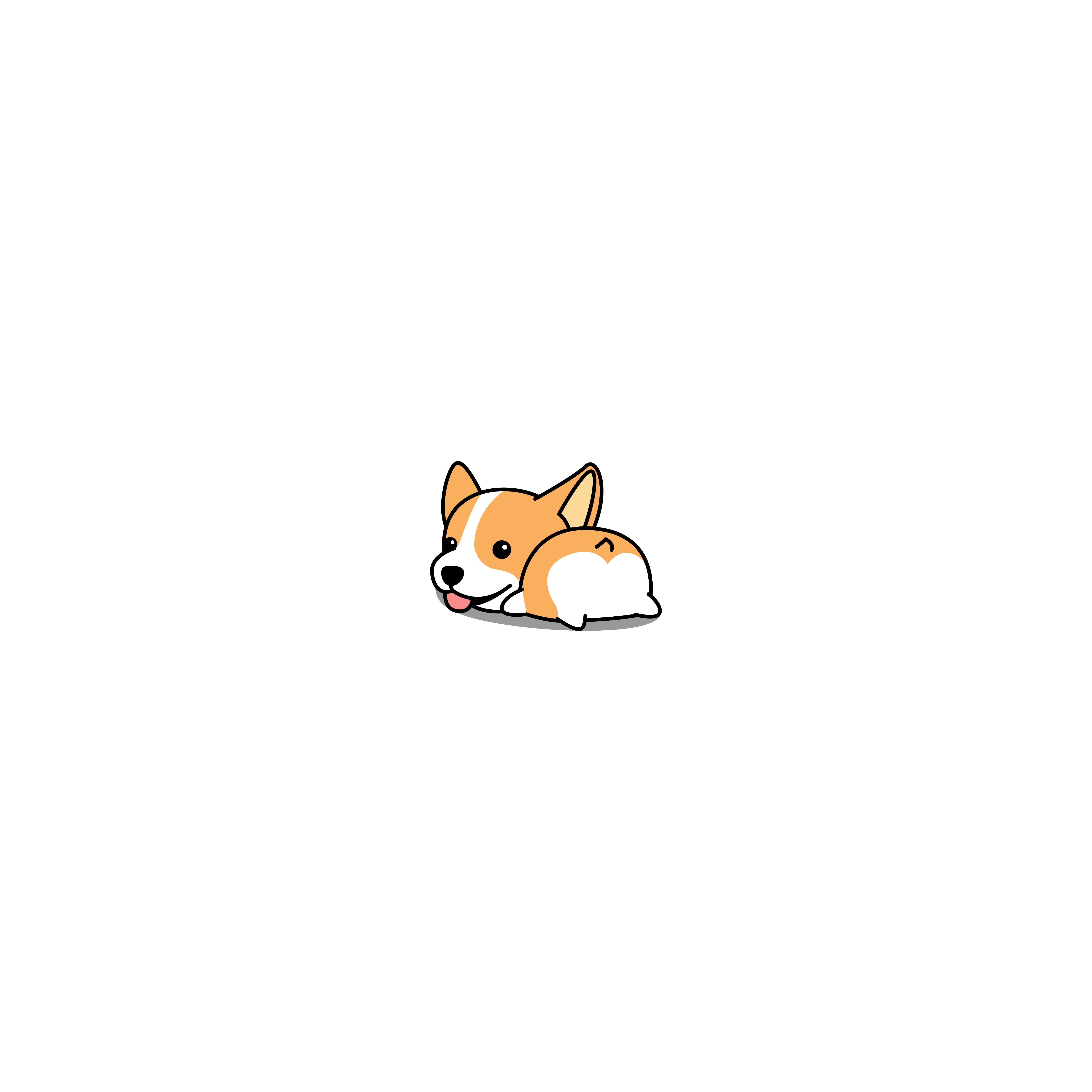Corgi Characteristics
- Home /
- Mini Encyclopedia /
- Animal /
- Corgi Characteristics
1
Corgis, known for their distinct short stature and robust body, stand out in the canine world. Typically, an adult Corgi measures about 10 to 12 inches at the shoulder and weighs in the vicinity of 25 to 30 pounds. Their lifespan, a testament to their hardiness, averages between 12 to 15 years. These little powerhouses are characterized by their long, low-to-the-ground bodies and short legs, a unique physique that combines agility with strength. Their dense double coat, which comes in a variety of colors including red, sable, fawn, and black and tan, adds to their charm and requires regular grooming to maintain its luster and health.
One of Corgis' most remarkable organs is their large, upright ears. Not just a cute feature, these ears are highly functional, giving Corgis an exceptional sense of hearing. This keen auditory ability was crucial in their historical role as herding dogs, allowing them to detect the slightest sounds of stray sheep or approaching threats. The structure of their ears, with a broad base and slightly rounded tips, enhances their ability to catch sound waves from various directions, making them excellent watchdogs and companions.

2
Question: Why do Corgis tend to gain weight easily, and how can this be managed?
Answer: Corgis are prone to weight gain due to their small stature and hearty appetite, characteristics that can lead to obesity if not properly managed. They require a balanced diet tailored to their specific energy needs, coupled with regular exercise. For an average Corgi, about 30 minutes to an hour of daily physical activity, such as walks or play sessions, is essential to keep them fit and prevent weight-related health issues. Monitoring their food intake, including treats, and ensuring they get sufficient exercise are key to maintaining a healthy weight. Consulting with a vet to establish a personalized feeding and exercise regimen is highly recommended to address each Corgi's unique needs.

3
Corgis are spirited and active dogs, embodying a blend of agility and endurance that belies their compact size. They thrive on regular exercise, which is crucial not only for their physical well-being but also for their mental health. A mix of activities, from brisk walks to playful fetch sessions, helps channel their energy positively and keeps them engaged. Their herding heritage means they enjoy activities that involve movement and challenge, making them eager participants in dog sports such as agility and obedience trials.
When it comes to feeding, Corgis do best on high-quality dog food that's appropriate for their life stage (puppy, adult, senior) and health status. Given their propensity to gain weight, portion control and a consistent feeding schedule are vital. Adult Corgis typically fare well with two measured meals per day. It's important to adapt their diet to their exercise level and any other individual needs, possibly incorporating vet-recommended supplements to support joint health, considering their long backs and active lifestyle.

4
Corgis originally hail from Wales, where they were bred for herding sheep and cattle. This background has instilled in them a love for open spaces and moderate climates, where they can indulge in their natural instincts to run and herd. While they adapt well to various living situations, including apartments, they do best with access to a yard or regular visits to a park where they can exercise freely. Their adaptability to different environments is complemented by their social nature, making them well-suited to a range of family settings.
Reproduction-wise, Corgis are known to be relatively easy breeders. A typical Corgi litter consists of about 6 to 8 puppies, though the number can vary. Responsible breeding practices are crucial to ensure the health and well-being of both the mother and her pups. Prospective Corgi breeders should conduct health screenings for common genetic issues like hip dysplasia and degenerative myelopathy, conditions that the breed can be predisposed to. Raising Corgi puppies requires a commitment to early socialization and training, laying the groundwork for well-adjusted adult dogs.

5
Book: "The Complete Guide to Corgis" by Sarah Stewart is an all-encompassing resource for prospective and current Corgi owners alike. Published in the United States in the late 2010s, this book delves into the breed's history, characteristics, and care requirements. Stewart, a renowned canine behaviorist, offers readers insights into the Corgi's temperament, training tips, and health care advice, making it an invaluable guide for navigating the joys and challenges of Corgi ownership.
Book: "Corgis: From Puppy to Senior" by James Williams, a British author and seasoned dog trainer, provides a comprehensive look at the Corgi's life stages. Released in the early 2020s, Williams' book covers the specific needs of Corgis as they progress from playful puppies to dignified seniors. With a focus on training, nutrition, and health care, this book is a go-to reference for owners looking to ensure a happy, healthy life for their Corgi companions.